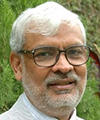Inferring Missing Information

Every day people make judgments and decisions, even when they don’t have the necessary information. Ramadhar Singh studied how people, when making predictions about others, infer the missing information from the facts they do have. In his research, Singh first experimentally demonstrated that Predicted gift size = Generosity x Capability (Income). Based on this evidence, he then identified that inferred value of the missing capability information increases with the given value of generosity information. In contrast, inferred value of the missing generosity information is constant usually around the middle level of generosity in the donor. Singh and his colleagues also demonstrated similar inferences about missing ability and motivation information in prediction of performance. Singh’s work identifying these kinds of asymmetrical inferences has helped social and cross-cultural psychologists understand and investigate how people judge morality and achievement of others even without the needed information.





APS regularly opens certain online articles for discussion on our website. Effective February 2021, you must be a logged-in APS member to post comments. By posting a comment, you agree to our Community Guidelines and the display of your profile information, including your name and affiliation. Any opinions, findings, conclusions, or recommendations present in article comments are those of the writers and do not necessarily reflect the views of APS or the article’s author. For more information, please see our Community Guidelines.
Please login with your APS account to comment.